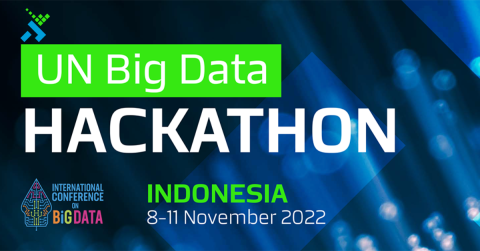More from UN DESA
UN Big Data Hackathon calls for solutions to current global challenges

Close to 2,000 data scientists and statisticians from more than 70 counties will compete in the 2022 UN Big Data Hackathon from 8 to 11 November 2022 as part of the 7th International Conference on Big Data and Data Science for Official Statistics.
Following the success of the UN Youth Hackathon of 2021 and the AIS Big Data hackathon of 2020, the UN Committee of Experts on Big Data and Data Science for Official Statistics (UNCEBD), the UN Major Group for Children and Youth (MGCY) and Statistics Indonesia will join forces in hosting the 2022 UN Big Data Hackathon. The event is taking place as a call to develop ideas and solutions to address the global challenges and help achieve the Sustainable Development Goals (SDGs).
The Hackathon will provide a platform for young people to use a wide variety of data to help solve global challenges. Rising energy prices are accelerating the cost-of-living crisis and sustaining the vicious cycle of constrained household budgets, food insecurity, energy poverty, and growing social unrest. Now more than ever, efforts to achieve the 2030 Agenda for Sustainable Development should be intensified.
The event will not only provide a channel for data science experts to communicate but it will also serve as a venue for youth worldwide to learn together.
The 400 competing teams will have access to a large number of data sets, including the World Risk Poll 2021, the data sets of the Humanitarian Data Exchange, and the data portal of UNICEF. Amazon Web Services will provide cloud infrastructure to all teams for the duration of the Hackathon. Esri and Tableau will support mapping and data visualization for the teams’ presentations.
Whereas most teams are competing on the Youth track (maximum age 32 years), about 50 teams are competing on the Big Data expert track, which includes access to the real-time Automatic Identification System (AIS) vessel tracking data, giving them the opportunity to come up with solutions involving maritime trade, transport, and associated environmental issues.
Most teams will compete remotely, but there will be some who will compete on-site at the Conference in Yogyakarta, Indonesia, and at the UN Regional Hubs for Big Data in Rio de Janeiro, Brazil, and Dubai, UAE. Members of the winning teams will be invited to the upcoming UN World Data Forum in April 2023 in Hangzhou, China.
 Welcome to the United Nations
Welcome to the United Nations